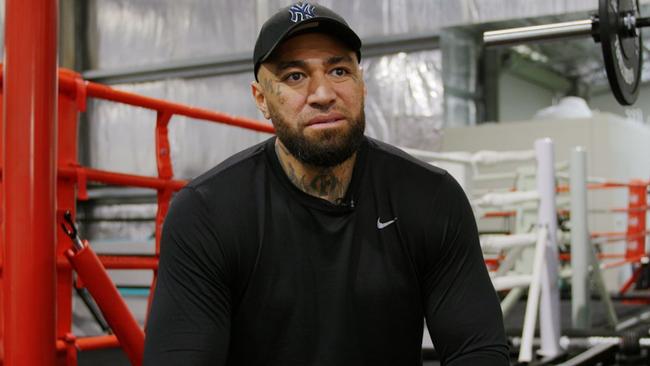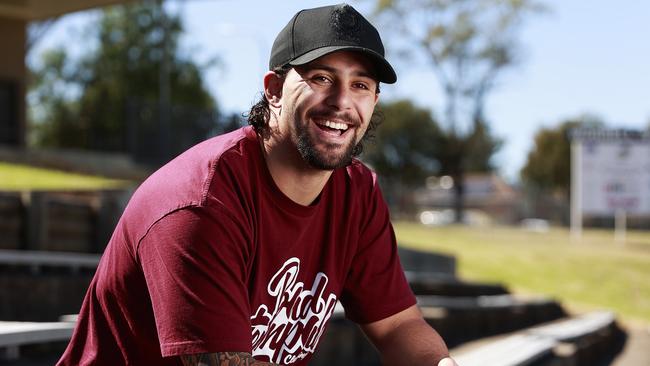The War: Young Blood - Postcode gang violence is being learnt at home, ex-bikie Big Kash believes
A reformed Sydney bikie has lifted the lid on how he joined a gang as a teenager and what it was that pushed him to seek a life on the streets. WATCH EPISODE 2 OF THE WAR: YOUNG BLOOD HERE
True Crime
Don't miss out on the headlines from True Crime. Followed categories will be added to My News.
The postcode wars are being fuelled by violence learnt in the home from an early age, a reformed gangster believes.
Bikie-turned-rapper John “Big Kash” Lavulo, whose heritage is Tongan, believes his people have a penchant for turning to violence to solve their issues – and this is behind the high percentage of Pacific Islander teens caught up in the street gangs.
Of the 11 teens killed because of knife crime or postcode wars on NSW’s streets in the past four years, three of them – Tino Henry in 2018, Alex Ioane in 2019 and Uati Faletolu in 2022 – had Polynesian backgrounds.
Lavulo said he first joined a street gang when he was “17 or 18” and had been enticed by a life on the streets because of issues at home.
“I don’t really know about other nationalities, but with Pacific Islanders we grow up with a lot of household violence,” he told The War: Young Blood.

“It’s like a normal thing to us, you don’t realise it’s not normal until you mix with the white kids.
“I had a lot of issues with my father, I dealt with rejection … and so I turned to the streets for validation, like looking to be accepted by other groups and that.
“And so it just escalated from that into the whole bikie lifestyle.”
NRL star Josh Aloiai has been outspoken on the postcode wars issue in the wake of Uati Faletolu’s death at the Royal Easter Show in April.
He initially called for a stop to the violence within Pacific Islander communities, believing it was occurring far too often.
Aloiai hopes the recent Rugby League World Cup which saw Samoan and Tongan supporters come together to watch their nations clash amid a show of unity from the teams will have a lasting impact in Sydney.
“Being a part of the Samoan rugby league team in the World Cup, the really beautiful thing we’ve seen out of the World Cup is Pacific Islander unity, and the way Samoa was able to bring the whole Pacific Islands together was a really beautiful thing,” he said.

“We need to take that with us, we need to bottle that.
“When there’s peace and harmony between our nations on the big stage, it really does filter because much of our stories are much the same if you go back far enough.
“There was a really great hashtag that came out of the World Cup – #TokoUso.
“Toko is brother in Tongan and Uso is friend in Samoan, so I love that athletes have driven that we are still brothers and friends, even after we play.”



